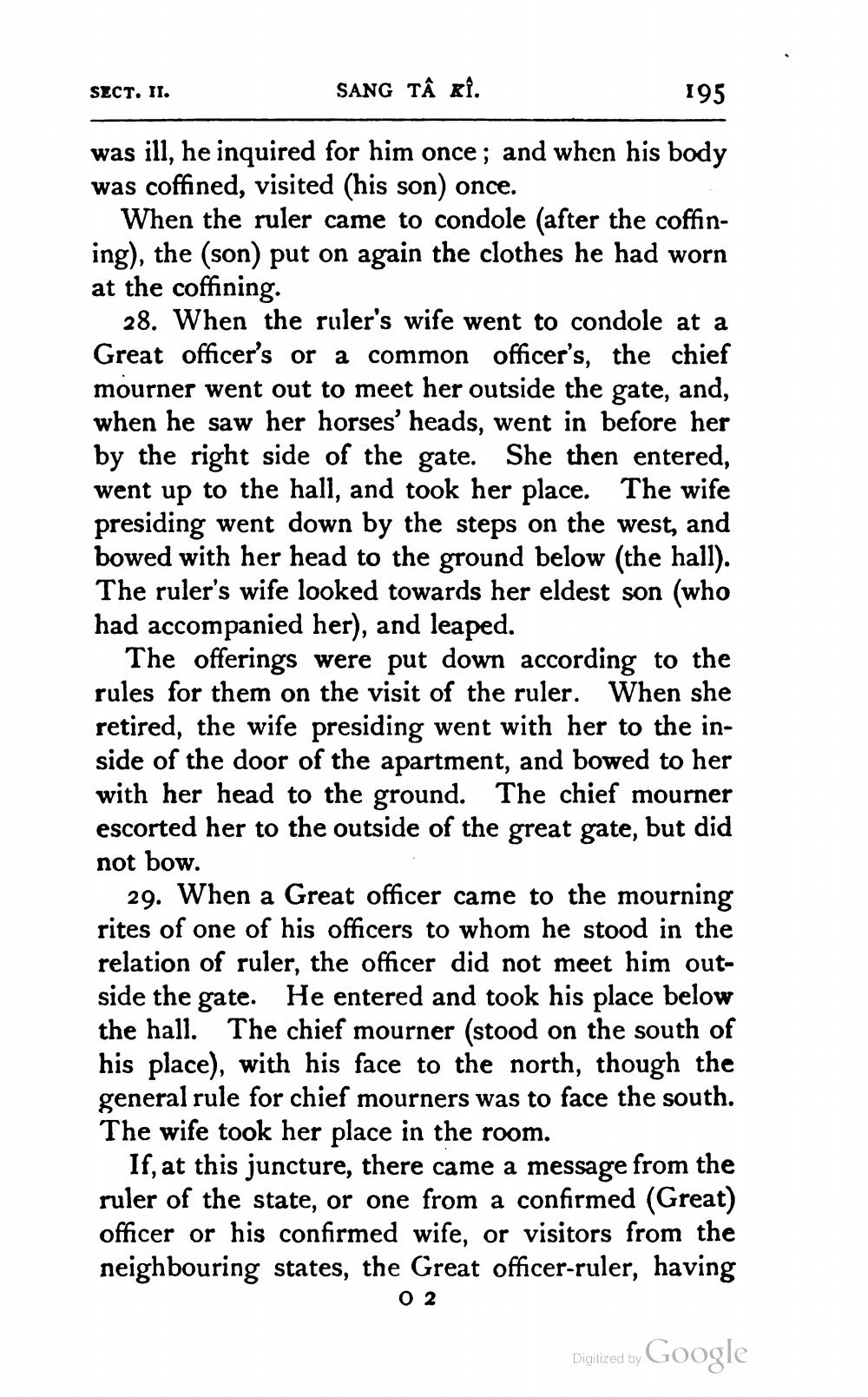________________
SECT. II. SANG TA KĨ.
195 was ill, he inquired for him once; and when his body was coffined, visited (his son) once.
When the ruler came to condole (after the coffining), the (son) put on again the clothes he had worn at the coffining.
28. When the ruler's wife went to condole at a Great officer's or a common officer's, the chief mourner went out to meet her outside the gate, and, when he saw her horses' heads, went in before her by the right side of the gate. She then entered, went up to the hall, and took her place. The wife presiding went down by the steps on the west, and bowed with her head to the ground below (the hall). The ruler's wife looked towards her eldest son (who had accompanied her), and leaped.
The offerings were put down according to the rules for them on the visit of the ruler. When she retired, the wife presiding went with her to the inside of the door of the apartment, and bowed to her with her head to the ground. The chief mourner escorted her to the outside of the great gate, but did not bow.
29. When a Great officer came to the mourning rites of one of his officers to whom he stood in the relation of ruler, the officer did not meet him outside the gate. He entered and took his place below the hall. The chief mourner (stood on the south of his place), with his face to the north, though the general rule for chief mourners was to face the south. The wife took her place in the room.
If, at this juncture, there came a message from the ruler of the state, or one from a confirmed (Great) officer or his confirmed wife, or visitors from the neighbouring states, the Great officer-ruler, having
02
Digitized by Google




